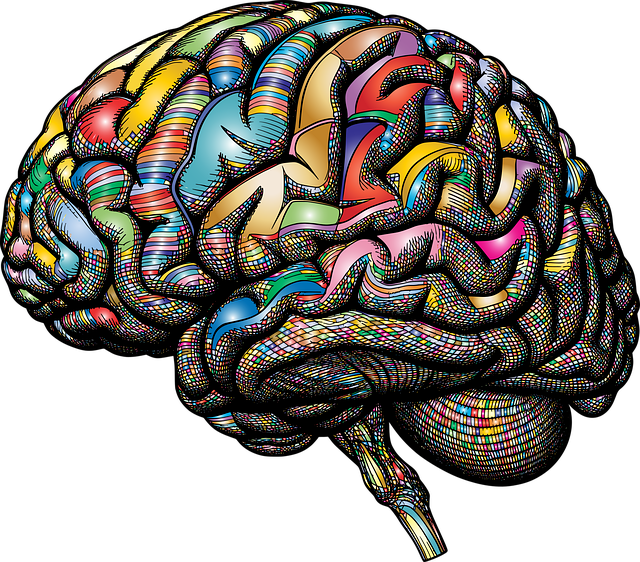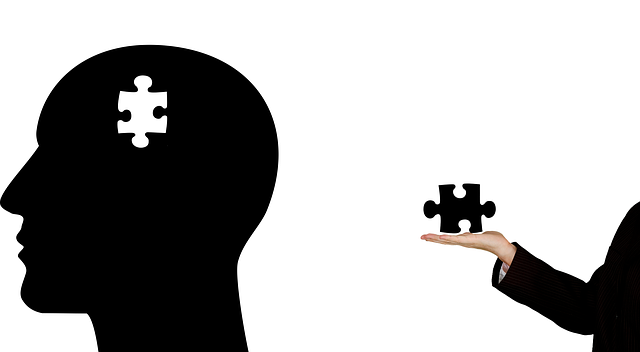Emotional Intelligence (EI) is a powerful tool for healing among sexual abuse survivors, offering them safe spaces for expression and recovery through therapies focused on EI, mindfulness, and emotional awareness. Cultural sensitivity in mental healthcare practices, tailored support based on backgrounds, prevents burnout and promotes long-term mental health. Self-awareness, social skills training, mind over matter techniques, empathy, communication, and public awareness campaigns enhance EQ, enabling survivors to navigate relationships, cope with trauma, and make informed decisions for fulfilling lives, ultimately improving their mental wellness. Effective communication in therapy builds trust, empathy, self-esteem, and resilience, leading to healthier relationships based on authentic expression and understanding.
Emotional intelligence (EQ) is a powerful tool for healing, especially for those who have experienced trauma, such as sexual abuse. Understanding EQ and its impact on emotional well-being can be life-changing for survivors. This article explores how building EQ can facilitate recovery through increased self-awareness, empathy, and communication skills. We discuss therapeutic approaches tailored to help survivors navigate barriers and foster healthy relationships, providing practical strategies for those seeking therapy for sexual abuse.
- Understanding Emotional Intelligence and Its Impact on Healing
- Recognizing the Barriers: Challenges in Building EQ for Survivors
- Therapeutic Approaches to Enhance Self-Awareness and Regulation
- Cultivating Empathy: A Powerful Tool for Connection and Support
- Strategies for Effective Communication and Building Healthy Relationships
Understanding Emotional Intelligence and Its Impact on Healing

Emotional intelligence (EI) is a powerful tool for healing and personal growth, especially for those who have experienced trauma, such as sexual abuse survivors. Understanding EI involves recognizing and managing one’s own emotions, as well as empathizing and responding to the feelings of others. This ability to navigate complex emotional landscapes can significantly impact recovery. In therapy sessions for sexual abuse survivors, promoting emotional well-being through techniques like mindfulness, emotional awareness exercises, and safe expression of feelings creates a supportive environment.
Cultural sensitivity in mental healthcare practice is integral to this process. Therapists who understand the unique cultural contexts and backgrounds of their clients can offer tailored support, ensuring that healing approaches are respectful and effective. By fostering EI, survivors develop skills to prevent burnout—a common issue among healthcare providers, especially those working with high-risk populations—and promote their own mental health. This holistic approach not only aids in coping with trauma but also empowers individuals to navigate relationships, make informed decisions, and lead fulfilling lives.
Recognizing the Barriers: Challenges in Building EQ for Survivors

Building emotional intelligence (EQ) is a complex process, especially for individuals who have experienced trauma, such as sexual abuse survivors. Recognizing and overcoming barriers is a crucial step in their journey towards healing. One significant challenge is the impact of trauma on brain development and cognitive functions, making it difficult for some survivors to interpret and regulate their emotions effectively. Many survivors may struggle with self-awareness, a fundamental aspect of EQ, due to the nature of their experiences, which can cause them to feel disconnected from their feelings.
Additionally, therapy for sexual abuse survivors often involves confronting painful memories and emotions, which can be retraumatizing if not handled skillfully. Survivors might find it hard to trust and open up during therapeutic processes, hindering their ability to practice and develop communication strategies and coping skills. Therefore, healthcare provider cultural competency training is essential to ensure that professionals working with these individuals are equipped to offer a supportive and safe environment, fostering the gradual building of EQ over time.
Therapeutic Approaches to Enhance Self-Awareness and Regulation

Many therapeutic approaches have proven effective in enhancing self-awareness and emotional regulation for survivors of sexual abuse. One such method is social skills training, which equips individuals with the necessary tools to navigate social interactions, fostering a deeper understanding of their emotions and those around them. This training can be life-changing for survivors, helping them rebuild relationships and boost confidence in various settings.
Additionally, integrating mind over matter principles into therapy sessions has shown remarkable results. By focusing on reframing thoughts and changing perceptions, survivors learn to manage their emotional responses more effectively. This mental shift empowers them to confront traumatic memories and associated triggers head-on. Public awareness campaigns development that promote emotional intelligence can also contribute significantly to the healing process, as it encourages a supportive community where individuals feel understood and validated.
Cultivating Empathy: A Powerful Tool for Connection and Support

Cultivating empathy is a vital tool for anyone seeking to enhance their emotional intelligence and provide support, especially for those who have experienced sexual abuse. It allows individuals to understand and share the feelings of others, fostering deeper connections and creating a safe space for vulnerability. For survivors of sexual abuse, building empathy can be transformative in therapy, helping them feel seen, heard, and validated. This ability to connect on an emotional level is crucial for rebuilding trust and nurturing mental wellness.
Through mental wellness coaching programs and journaling exercises, individuals can learn to recognize and respond to the emotions of others. These practices encourage self-reflection and promote healthy coping strategies, which are essential in preventing burnout. By developing empathy, one can create supportive environments, whether in personal relationships or professional settings, ultimately contributing to improved mental wellness and resilience.
Strategies for Effective Communication and Building Healthy Relationships

Effective communication is a cornerstone of emotional intelligence, crucial for building healthy relationships and fostering mental wellness. For individuals who have experienced sexual abuse, developing strong communication skills can be transformative in therapy. It allows them to express their feelings, needs, and boundaries clearly, which is essential for forming safe and supportive connections. Through practicing active listening, maintaining open body language, and using “I” statements, survivors can enhance their ability to communicate their experiences and emotions authentically.
Building healthy relationships necessitates a deep understanding of oneself, which ties into inner strength development and self-esteem improvement. Emotional intelligence enables individuals to recognize and manage their own emotional states, leading to more adaptive coping mechanisms. By prioritizing self-care and cultivating positive self-talk, survivors can enhance their mental resilience, boosting their confidence and overall well-being. This process is integral to creating supportive relationships based on trust, empathy, and genuine connection.
Emotional intelligence (EQ) is a transformative tool for healing and growth, especially for individuals who have experienced trauma, such as sexual abuse. By navigating the challenges and employing therapeutic strategies discussed in this article—from enhancing self-awareness and empathy to improving communication—survivors can build resilience, foster healthy relationships, and embark on a journey of personal metamorphosis. Recognizing and addressing emotional barriers is a crucial step towards recovery and a brighter future, offering hope and support for those who seek it.








